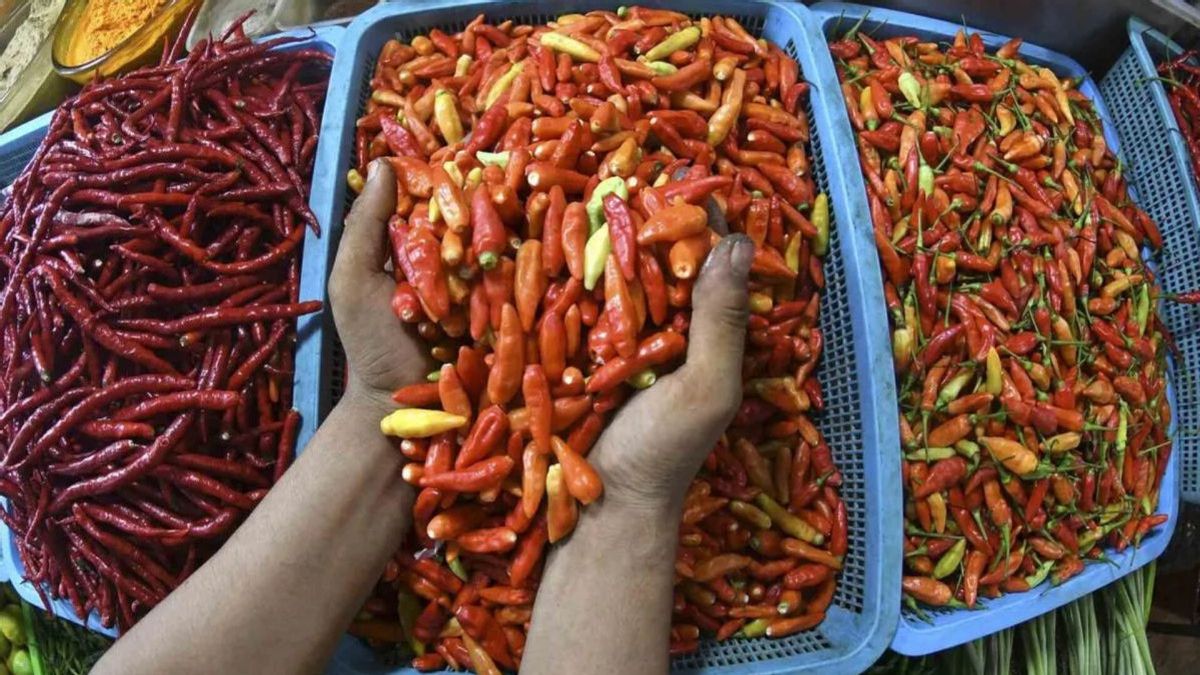JAKARTA - The price of red cayenne pepper has recently experienced a significant increase in the market.
In fact, the type of red cayenne pepper has reached IDR 72,000 per kilogram (kg) at the farmer level.
Chairman of the Indonesian Chili Champion Association (ACCI) Tunov Mondro Atmojo said that at the farmer level, the increase in chili prices had only occurred in the last eight days.
"At the farmer level, the price increase has not yet reached two weeks. About eight days. Before that the price was still quite stable, it was still in a reasonable stage," he said when contacted by VOI, Friday, January 10.
Based on data as of January 9, continued Tunov, the price of cayenne pepper or super or grade A at the farmer level is currently IDR 77,000 per kg. As for super critical red chilies of IDR 44,000 per kg.
At the farmer level, at our co-operation, the super-ori red chip is Rp. 77,000, and for ordinary red tweets it is Rp. 70,000 to Rp. 72,000. For super-criticing red chilies it is Rp. 44,000," he said.
Referring to the Regulation of the National Food Agency (Perbadan) Number 12 of 2024, the Price of Sales References (HAP) at the farmer level for red cayenne pepper is Rp. 25,000 to 31,500 per kg and dry red chilies are at Rp. 22,000 to Rp. 29,600 per kg.
Meanwhile, HAP at the consumer level is set for red cayenne peppers of Rp. 40,000 to 57,000 per kg and curly red chilies of Rp. 37,000 to 55,000 per kg.
SEE ALSO:
Tunov said the increase in chili prices at the farmer level occurred because production decreased due to extreme weather. Where, many chili gardens were flooded. In addition, heavy rain and wind caused chili flowers to fall out.
"That's mostly productivity down due to flower falloffs. Rain, wind, many flowers fall out, finally the probability per tree is drastically reduced, it can reach 50 percent," he explained.
Furthermore, Tunov said, chili plantations affected by flooding occurred in almost all areas of chili centers.
"For the area that was flooded, it is almost comprehensive. From NTB to West Sumatra, it is comprehensive. It is complete in all centers," he said.
Currently, continued Tunov, farmers have started planting chili trees that were damaged by the wind and rain.
"We have anticipated, now we have started to even replace damaged plants, chilies, we immediately arranged them, we will change them again. Hopefully later in February we will face Eid, we will have more production," he said.
The English, Chinese, Japanese, Arabic, and French versions are automatically generated by the AI. So there may still be inaccuracies in translating, please always see Indonesian as our main language. (system supported by DigitalSiber.id)
















